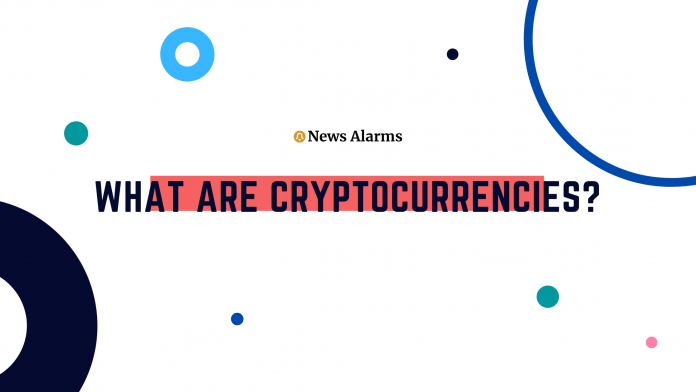Lesson 1: An Overview
What Are Cryptocurrencies?
How much of the money supply in the world is digital? Most estimates place it around 90%. That is, 90% of all money in existence doesn’t really exist except for ones and zeros on a bank’s server. Countries used to print money, sometimes with devastating effects like hyperinflation, but now it’s far far easier. Just add a couple of zeros to the end of an entry in your database and voila, you’ve created another trillion dollars. If you’ve been paying attention to the news lately you will have seen countless reports on hacks: from the presidential elections to SONY and HBO. How much longer do you think it will be before your money, the ones and zeros on the bank server, become vulnerable? These were among the first reasons for the creation of Bitcoin. Immune to inflation, immune to hacking, but it doesn’t stop there. Over the past decade, the community of developers has started to realize that the scope of what they’re creating is much larger than first meets the eye. If you want to, you can jump straight to Use Cases to see what they are currently being used for and what the future holds.
If you’re looking for a precise definition then cryptocurrencies can be defined as:
A digital currency in which encryption techniques are used to regulate the generation of units of currency and verify the transfer of funds, operating independently of a central bank.
The term cryptocurrencies can be misleading as some of the projects I’ll be discussing in this guide aren’t currencies. Some are assets, some are “platforms”, some are businesses. For the sake of accuracy, I will simply refer to them as cryptos
Despite all this talk, you will still likely be asking why should you care about any of this. Below I will outline where the true value of cryptos lies.
The importance of something is derived from how valuable it is. Sometimes this manifests purely from a shared belief such as in the case of gold, but most of the time it’s because something is useful. I’m sure you’ve heard Bitcoin being compared to “Digital Gold” and while the analogy serves as an entry point it is far far more useful than gold.
While many cryptos try and differentiate themselves to address specific problems, most of them share a common set of inherent values: security, transparency (or lack thereof), immutability, global accessibility, speed, and price. This is a shared characteristic of almost all cryptos with some caveats.
- Security: Centrally controlled assets such as FIAT currencies, bonds, securities, and title deeds are all vulnerable to tampering. Either a central bank can change the money supply, a corrupt or incompetent government can change or lose records or records of ownership can be damaged by water and fire, even if they’re stored in digital form. Cryptos are, by their nature, decentralized. Records don’t exist in one location but in hundreds or thousands of servers around the world. In the case of Bitcoin, the network can only be compromised if 51% of the computing power of the servers is directing a malicious coordinated attack. This becomes an economically impossible task given the already huge amount of computing power distributed around the world and the limited amount of damage one can do. The individuals taking part in the system have economic incentives not to tamper with the network (Note that whilst it’s almost impossible to hack the network, the same cannot be said for individual security…)
- Transparency: Almost every crypto is open source, ie. Its source code is available for everyone to see. For those who understand the programming, the inner workings are completely transparent. It is possible then to trust the system without needing to trust anyone person as code only obeys logic. Furthermore, with the use of “explorers”, it is possible for anyone to see every transaction that has ever been executed since the crypto’s creation. Some cryptos differentiate themselves by doing the opposite and making it impossible (or so they claim) for anybody to trace your transactions.
- Immutability: Given the previous two points, it is not only nigh on impossible to change the transaction history but fully verifiable, allowing for complete confidence that said transactions have taken place without the need to place faith in a third party. These records can never be changed bar a complete collapse of the ecosystem.
- Global accessibility: Geography is irrelevant when it comes to sending and receiving cryptos. As long as you have access to the internet the cost and speed of transaction is the same for somebody with an optic fiber connection in London as it is for someone with a mobile connection in Ethiopia.
- Speed and price Bank transfers typically take 3-5 business days and offer poor exchange rates between currencies. Cryptos solve this with transaction times ranging from instantaneous to 1 hour depending on the crypto being used. Furthermore, there is no need to change currency so the amount sent will be the amount received minus a (usually) small or zero transaction fee.
Hopefully, you will start to see the implications of these common characteristics. With these transactions, there is no need to put your trust in a potentially corrupt or inefficient third party. From a purely financial perspective, it not only allows you to conduct “trustless” deals across the globe and lower any associated fees but opens up new markets that previously suffered from institutional corruption, unstable currencies, and poor business practices.
This is only the beginning, new cryptos are appearing on the scene with vastly improved capabilities: automatically settle futures trading, automate supply lines and allow machines to purchase products and services from each other as the need arises. This may sound outlandish but keep reading.


